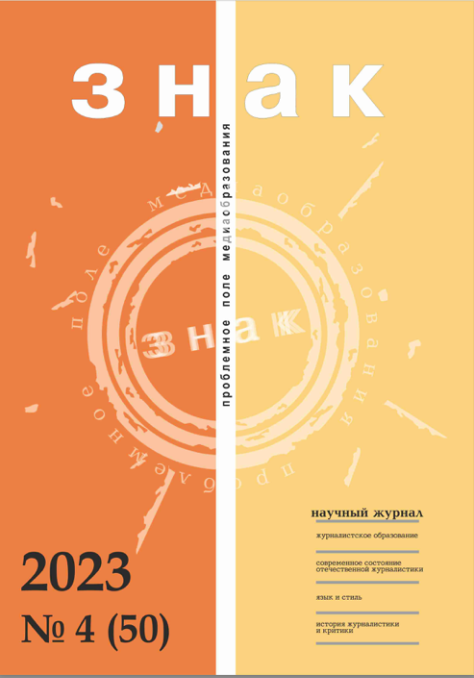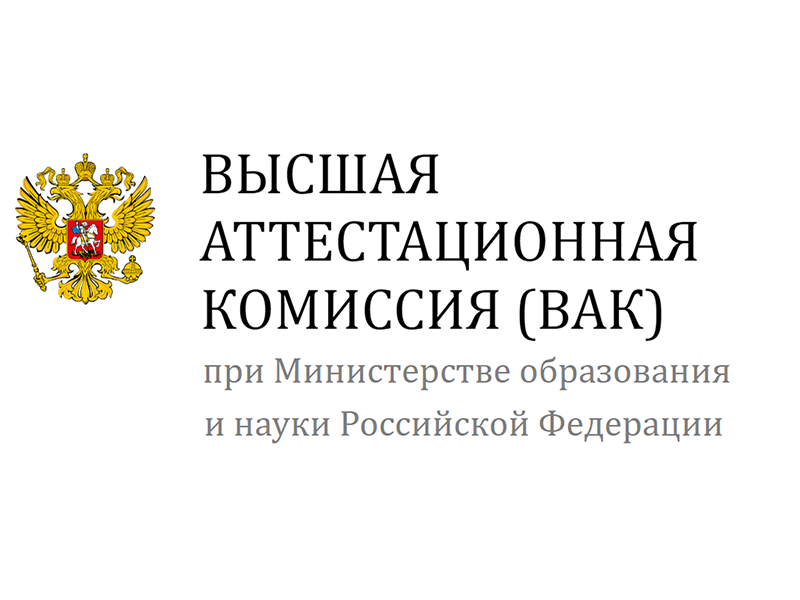Lingo-psychological analysis of the possibilities of actual generative language models in political discursive practices (on the example of Chat GPT)
DOI:
https://doi.org/10.47475/2070-0695-2023-50-4-29-39Keywords:
political discourse, generative language models, AI, artificial intelligence, linguistic analysis, political psychology, Chat GPTAbstract
This article is a theoretical and practical generalization based on the results of an experiment conducted by the authors in the spring of 2023 as part of a joint project of Moscow Pedagogical State University and Baikal State University. This project was carried out by the Department of Political Science at Moscow State Pedagogical University and the Department of Theoretical and Applied Linguistics at BSU, which carried out scientific research on the topic of research work “Language and Man”. Despite the emphasis on relevant applied results in this publication, the authors also provide a brief theoretical overview to understand the main historical and theoretical-methodological aspects of the research topic. An interdisciplinary approach to the use of modern generative language models in current political discourse is the basis of this work. Neural network generative language algorithms already provide unique opportunities for creating a variety of content, including the political sphere. In addition, the authors offer a brief analytical overview of modern psychological and linguistic techniques of manipulation, which continue to develop and play a significant role in modern political discourse. The article also contains an overview of contemporary scientific knowledge related to the stated research topic. At the same time, the authors see the main goal of the work in a theoretical and applied study of the current potential of the leading publicly available generative language model Chat GPT (4.0) in the field of political discourse using suggestive techniques and manipulations. The basis of this study was the author’s corresponding bilingual requests for the generation of three texts of a manifestational and ideological nature, which then became the object of psychological and linguistic analysis. At the end of the experiment, brief final analytical statements were formulated in the context of the stated topic. The authors come to the conclusion that generative language models can already be widely used today to create a wide variety of media content in different forms of communication, while quite complex linguistic constructions can be implemented according to appropriate requests.
References
Budaev, E. V. (2016). Metodologiya i metodiki issledovaniya politicheskoy kommunikatsii v zarubezhnoy politicheskoy lingvistike [Methodology and methods for researching political communication in foreign political linguistics]. Teoriya i metodika lingvisticheskogo analiza politicheskogo teksta [Theory and methodology of linguistic analysis of political text]. Ekaterinburg : Ural. gos. ped. un-t., 198–240. (In Russ.).
Grigorenko, V. A. (2022). Sinonimiya kak instrument sozdaniya suggestivnogo potentsiala v politicheskom diskurse [Synonymy as a tool for creating suggestive potential in political discourse]. Sovremennoe pedagogicheskoe obrazovanie, 3, 167–171. (In Russ.).
Danchenko, V. V. (2020). Obzor sredstv razrabotki informatsionnoy sistemy, osnovannoy na analize vospriyatiya teksta [Review of tools for developing an information system based on the analysis of text perception]. Informatika i prikladnaya matematika, 26, 31–34. (In Russ.).
Zyryanova, I. N., Kosyakov, V. A. (2022). Suggestivnoe vozdeystvie stereotipov (na materiale sovremennykh angloyazychnykh SMI, sozdayushchikh obraz Rossii) [Suggestive influence of stereotypes (based on the material of modern English-language media creating the image of Russia)]. Filologicheskie nauki. Voprosy teorii i praktiki, Vol. 15, 9. 2914–2919. (In Russ.).
Mel’nik, E. A. (2012). Politicheskiy diskurs kak sredstvo manipulirovaniya massami [Political discourse as a means of manipulating the masses]. Uchenye zapiski OGU. Seriya: Gumanitarnye i sotsial’nye nauki, 2, 143–148. (In Russ.)
Osipov, G. A. (2013). Khedzhirovanie kak kognitivno-pragmaticheskiy priem suggestii v politicheskom diskurse [Hedging as a cognitive-pragmatic technique of suggestion in political discourse]. Maykop, 23 p. (In Russ.).
Parasutskaya, M. I. (2009). Problema yuridizatsii rechevoy manipulyatsii i suggestii [The problem of legalization of speech manipulation and suggestion]. Mir nauki, kul’tury, obrazovaniya, 6 (18), 69–70. (In Russ.).
Rogozhnikova, T. M. (2019). Politicheskaya kommunikatsiya i verbal’naya suggestiya v formate psikholingvisticheskoy paradigmy [Political communication and verbal suggestion in the format of the psycholinguistic paradigm]. Politicheskaya lingvistika, 2 (74), 24–37. (In Russ.).
Tishin, N. V. (2010). Verbal’nye sredstva vnusheniya v politicheskom diskurse [Verbal means of suggestion in political discourse]. Vestnik adygeyskogo gosudarstvennogo universiteta. Seriya 2 : filologiya i iskusstvovedenie, 1, 135–138. (In Russ.).
Chernavskiy, A. S. (2015). «Novye media» i razvitie zhurnalistiki tsifrovoy ery [«New media» and the development of journalism in the digital era]. Kontury global’nykh transformatsiy: politika, ekonomika, pravo, Vol. 8, 5 (37), 18–24. (In Russ.).
Chernyavskaya, V. E. (2014). Diskurs vlasti i vlast’ diskursa : problemy rechevogo vozdeystviya [Discourse of power and power of discourse: problems of speech influence]. Moscow : Direkt-Media, 184 p. (In Russ.)
Chikileva, L. S. (2017). Pragmalingvisticheskiy aspekt politicheskogo mediadiskursa kak sredstva formirovaniya tsennostey natsii [Pragmalinguistic aspect of political media discourse as a means of forming the values of the nation]. Rossiyskiy gumanitarnyy zhurnal, Vol. 6, (1), 82–94. (In Russ.)
Chudinov, A. P. (2016). Obshchie voprosy politicheskoy lingvistiki [General issues of political linguistics]. Teoriya i metodika lingvisticheskogo analiza poli ticheskogo teksta [Theory and methodology of linguistic analysis of political text]. Ekaterinburg : Ural. gos. ped. un-t, 9–35. (In Russ.)
Shanov, S. V. (2018). Primenenie bayesovskogo klassifikatora dlya opredeleniya tematiki teksta [Using a Bayesian classifier to determine the subject of text]. Modelirovanie, optimizatsiya i informatsionnye tekhnologii, Vol. 6, 1 (20), 131–139. (In Russ.).
Bryndin, E. (2020). Creative communication safe ethical artificial intelligence in the era of technological development. Software Engineering, Vol. 8 (3), 13–23.
Dale, R. (2021). GPT-3: What’s it good for? Natural Language Engineering, 27 (1), 113–118.
Dehouche, N. (2021). Plagiarism in the age of massive Generative Pre-trained Transformers (GPT-3). Ethics in Science and Environmental Politics, 21, 17–23.
Jakesch, M., Bhat, A., Buschek, D., Zalmanson, L. and Naaman, M. (2023). Co-writing with opinionated language models affects users’ views. Proceedings of the 2023 CHI Conference on Human Factors in Computing Systems, 1–15.
Kamil, S. I. (2017). The Pragmatics of Manipulation in British and American Political Debates. Anchor Academic Publishing, 372 p.
Karras, T., Laine, S., & Aila, T. (2019). A style-based generator architecture for generative adversarial networks. Proceedings of the IEEE/CVF conference on computer vision and pattern recognition, 4401–4410.
Samant, R. M. et al. (2022). Framework for deep learning-based language models using multi-task learning in natural language understanding: A systematic literature review and future directions. IEEE Access, Vol. 10, 17078–17097.
Stiff, H., Johansson, F. (2022). Detecting computer-generated disinformation. International Journal of Data Science and Analytics, 13 (4), 363–383.
Downloads
Published
How to Cite
Issue
Section
License
Copyright (c) 2023 Znak: problemnoe pole mediaobrazovanija

This work is licensed under a Creative Commons Attribution-NonCommercial-NoDerivatives 4.0 International License.




